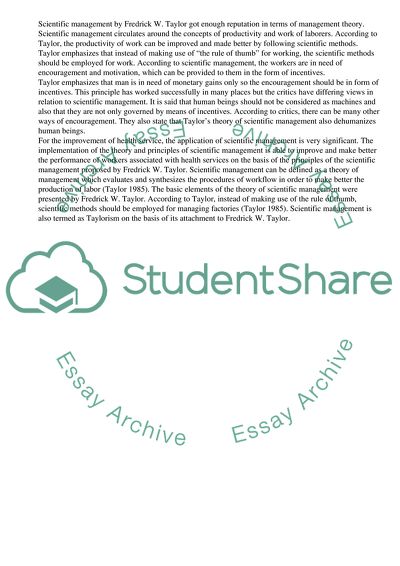Cite this document
(“Taylor's Scientific Management Term Paper Example | Topics and Well Written Essays - 3000 words”, n.d.)
Taylor's Scientific Management Term Paper Example | Topics and Well Written Essays - 3000 words. Retrieved from https://studentshare.org/management/1719997-mangement-in-organisation
Taylor's Scientific Management Term Paper Example | Topics and Well Written Essays - 3000 words. Retrieved from https://studentshare.org/management/1719997-mangement-in-organisation
(Taylor'S Scientific Management Term Paper Example | Topics and Well Written Essays - 3000 Words)
Taylor'S Scientific Management Term Paper Example | Topics and Well Written Essays - 3000 Words. https://studentshare.org/management/1719997-mangement-in-organisation.
Taylor'S Scientific Management Term Paper Example | Topics and Well Written Essays - 3000 Words. https://studentshare.org/management/1719997-mangement-in-organisation.
“Taylor'S Scientific Management Term Paper Example | Topics and Well Written Essays - 3000 Words”, n.d. https://studentshare.org/management/1719997-mangement-in-organisation.


